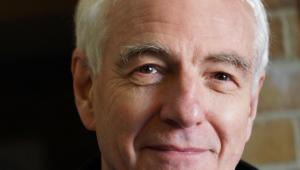Elected mayors are being talked up as the future for local communities. But ahead of the May 3 referendums, it's worth looking at some of the downsides
The impact of an elected mayoral system is totally unknowable and that is precisely the problem. It concentrates enormous authority and control in the hands of one individual and much depends on the quality and personality of that individual. Whoever elects one is buying a ‘pig in a poke’
To manage the complexity of a large council as a single individual you need someone with the wisdom of Solomon. Unfortunately those sort of people, by definition, do not tend to stand. The risk is, therefore, that the electorate will end up with someone with a very large ego, little sensitivity and insufficient patience and diplomacy to get things done. Those sort of people do tend to stand.
So there is an in-built problem from the beginning. The second endemic problem is that the balance of power within an authority is upset. Instead of a two-way relationship between the leader and the chief executive, there is a three-way relationship between elected mayor, the chief executive and the leader/chair of the ruling group - and without the checks and balances built into the current system. It is the difference between balancing a see saw with two points and a triangle with three: a far more difficult exercise.
The third built-in problem is the relationship with other elected councillors. Their role, already diminished under the scrutiny system which councils now subscribe to, is reduced further. There is an expectation by the public that the all-powerful mayor can ‘fix it’ what ever ’it’ is, Therefore the recourse is to the mayor and not the ward councillor, when often it is the ward councillor who has most knowledge and is better placed to take up the issue. This creates enormous resentment.
To compound the problem, if it all goes wrong, you can’t ‘get rid’ of it - simply because the mayor responds, not to the council, but to the electorate every four years. So you have stand-offs between the rest of the council and the mayor, a bit like that which so often afflicts Congress and the presidency in the US. This applies particularly at budget times when the horse trading is especially acute.
Then there is the cost. The referendum in Nottingham will cost £300,000, the elections in 2013 and 2017 will cost around £683,000. The salary of the mayor could be anything up to £115,000, whilst the current leaders’ salary is £44,000; then there is the increase in staffing costs - and any mayor will certainly want increased self-publicity.
Finally, hard decisions; there is a tendency to avoid them. Responding to the electorate directly, mayors often become populist, promising things they can’t deliver, and not doing things that are unpopular. You could say that of many politicians, but the tendency is accentuated under this system.
The mayor of Doncaster, for example, promised to get rid of equal opportunities and road humps. The first was illegal, the second undoable. Boris Johnson knows that a third run-way is needed for London Airport, yet he comes up with the impractical Boris Island as a diversion. In Nottingham, when the first line of the tram was built, it was initially very unpopular. Now it is great success. It was pushed through by collective responsibility. I doubt it would ever have been supported by an elected mayor.
In short, the elected mayor arrangement risks destabilising systems, undermining democracy and costing substantially, not only in direct expenditure but in conflict, time wasted, energy spent on introspection and self-aggrandisement (mostly male), as opposed to achievement. Where the arrangement has avoided problems there is no evidence that elected mayors have added great value to their area. Some have been reasonable, even good, but there is no dramatic improvement which may not otherwise have happened had they been leaders.
On the other hand, here is much evidence to show, as in Torbay, North Tyneside, Stoke, Doncaster, Hartlepool and Tower Hamlets that the system has created conflict and confusion. Of the 14 places in which elected mayors have been established there are six at least where there have been serious problems and this is being generous. It is a high rate of attrition.
We have been told that elected mayors are the future. However given their abolition in Stoke, and the movement in Doncaster and possibly North Tyneside and Torbay to abolish them, perhaps their post-future demise would be a more accurate prediction.
Graham Chapman is deputy leader of Nottingham City Council











